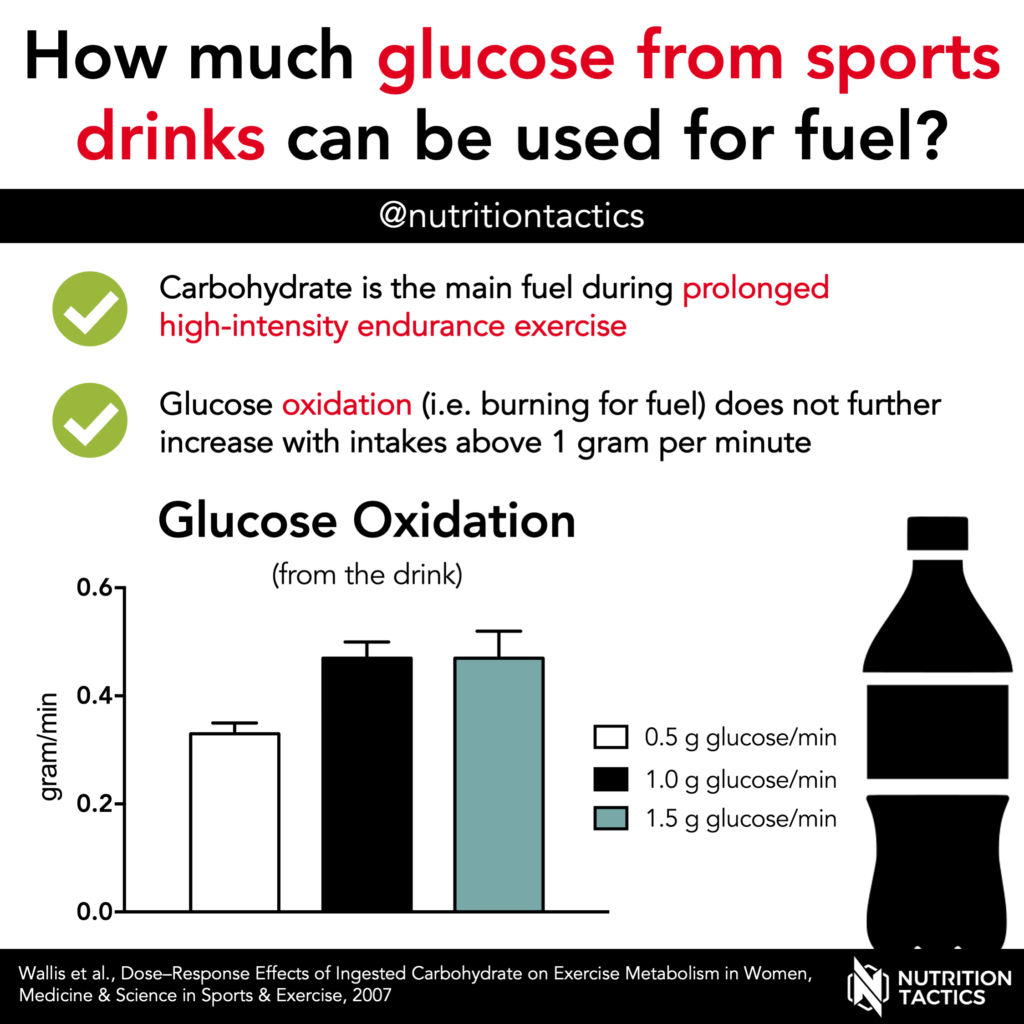How much glucose from sports drinks can be used during exercise??
Carbohydrate is the main fuel source during prolonged high-intensity exercise. However, only a limited amount of carbohydrate can be stored. Therefore, depletion of carbohydrate stores can be a limiting factor during prolonged high-intensity exercise. However, the carbohydrates stores can be supported by the ingestion of carbohydrates during exercise (e.g. via sports drinks).
This study investigated whether higher glucose intakes during prolonged high-intensity exercise would lead to greater rates of glucose oxidation (i.e. burning for fuel) from the drink. Three dosages were tested: 0.5 g/min (low), 1.0 g/min (moderate), and 1.5 g/min (high) during 2 hours of cycling.
As expected, the low glucose intake resulted in the lowest glucose oxidation. However, the high glucose intake resulted in the same glucose oxidation as the moderate dosage. In addition, the high glucose intake resulted in more gastrointestinal (GI) complaints.
Therefore, it appears there is a limitation in the absorption speed of glucose in the GI tract. When glucose is consumed at a rate of >1 g/min, it seems to accumulate in the gut and make you feel sick.
Go to the next infographic in the carbohydrate series:
Should fructose be in sports drinks?


Leave a Reply